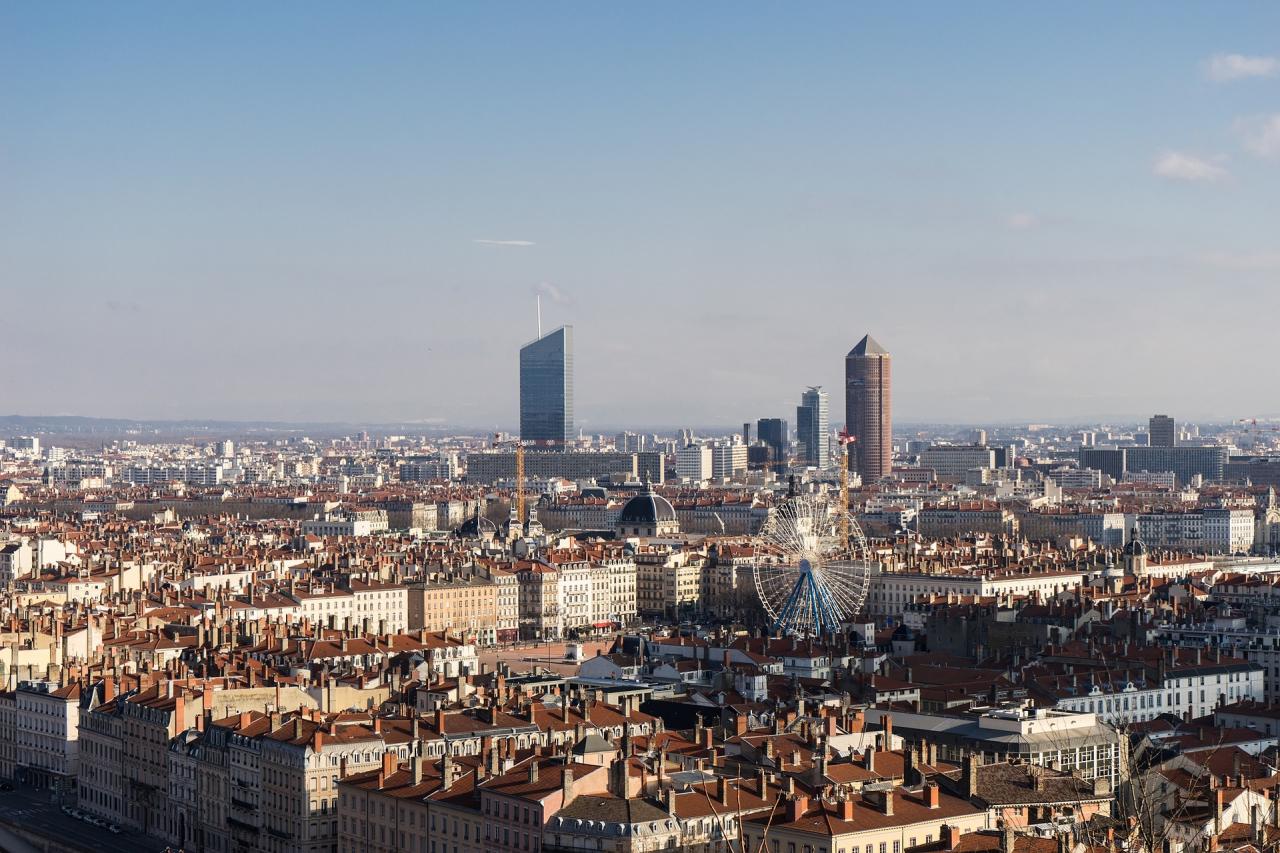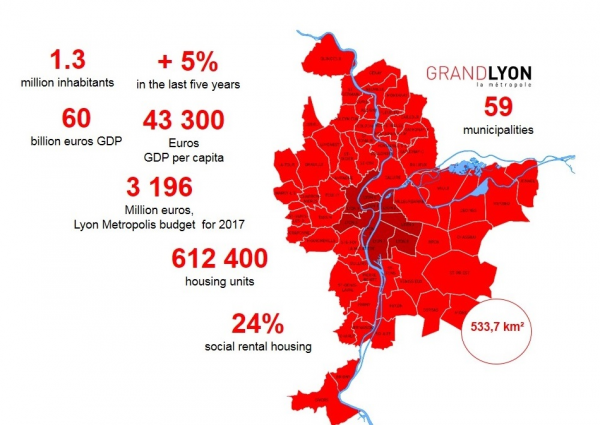
The Lyon metropolitan area is quite dynamic and attractive. With 1.3 million inhabitants, it ranks as the third French metropolitan area and its population is still increasing. However, with a poverty rate of 15.2%, more than 195.000 people live under the poverty line. The most deprived areas are located in the South East, combining social and territorial inequalities.
The Lyon Metropolis is an institutional innovation based on the merger of the Lyon urban community and the Rhone Department. Created by law on January 2015, it is responsible for a large number of competencies: economic development, town planning, environment and quality of life, housing and social cohesion, solidarity, education, culture and sport.
The housing strategy seeks to maintain a high level of housing construction (9.000 per year) and to implement a mixed and varied set of construction programmes (every kind of housing, everywhere on the 59 municipalities). Its objective is also to improve quality of the existing housing units and to facilitate provision and preserving housing units.
The Lyon metropolitan area is challenged by many social and territorial issues. Thus, the Lyon Metropolis adopted its first Metropolitan Solidarity Project on November 2017. This project covers a broad range of responsibilities, such as: early childhood, child protection, disabled and elderly people, health prevention and social development. It is built around 4 strategic axes and 80 actions.
Within URBInclusion, the Lyon Metropolis chose to focus on 6 actions addressing a key implementation challenge of the Metropolitan Solidarity project: how to renew social approach to better include vulnerable people among society? These actions are mainly located in two less-favored municipalities of the Lyon urban area: Saint-Fons and Vénissieux.
- Co-producing, with social workers and researchers, a new framework for social work, in the field of child protection.
- Training social workers, in the field of social housing, to use collective intervention and citizen participation methods in order to improve community life in social housing neighborhoods.
- School dropout prevention with social workers intervening in schools to facilitate relationships between families and teachers.
- Preventing energy poverty, supporting households who can not pay their energy bills to improve the energy performance of their housing.
- Developing social clauses in public procurement in order to better promote local employment and diversify the types of jobs that are offered.
- Fostering innovation for solidarity: the « Espace créateur de solidarités » / “space for solidarity making” offers a comprehensive social support to vulnerable families through a wide range of actions for the inhabitants of the area (social grocery, local community gardens, a recycling and upcycling shop, and a tool library).
